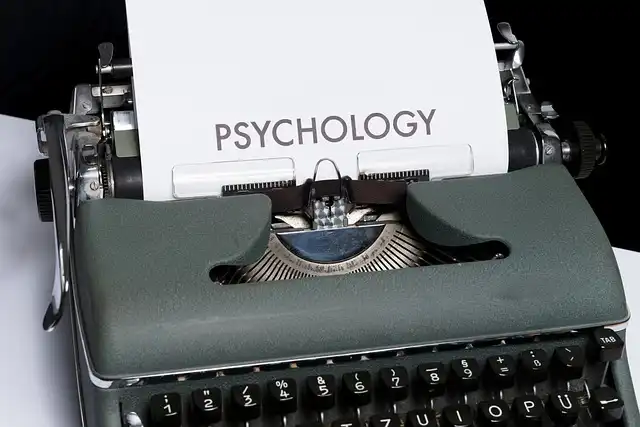Memory Lane: False Memories, Imperfect Recall, and Human Strengths

Memory Lane explores the imperfect, flexible nature of human memory, its vulnerability to false information, and how its limitations are actually strengths. It emphasizes adaptation over perfect recall.
Greene and Murphy present appealing experimental evidence that false-memory syndromes are widespread and very easy to dental implant. Youngsters and older adults seem specifically vulnerable to false information, but no one is immune, despite education or intelligence.
The Imperfect Nature of Memory
Greene and Murphy argue that it remains in the actual nature of memory to be imperfect, flexible and restricted. This message is heartening, yet it does not clarify why we would anticipate memory to be extra capacious, coherent and sturdy in the first place. Nor does it explain why we linger with this wrongheaded expectation, despite a lot proof on the contrary.
There is no scarcity of books on memory, from self-help guides for the anxiously ageing to scholarly works of background. Memory Lane is distinctive for taking the perspective of used cognitive psychology. Emphasising just how memory functions in everyday life, Greene and Murphy check out the procedures of memory and the impacts that shape them.
Memory’s Role in Everyday Life
Human memory is likewise progressively taxed by the frustrating and accelerating volume of info that assaults us. Our irritation with its limitations shows the determined inequality we feel between human nature and the impersonal systems of information in which we live.
All facets of our lives are progressively taped and datafied, a process that requires precision, uniformity and neutrality. The bounded and mutable nature of human memory presents a difficulty to this digital regimen.
Memory Lane devotes some time to the “memory battles” of the 1980s and 1990s, when debate raved over the presence of repressed memories. Greene and Murphy say the now conventional sight that several terrible memories apparently recouped in treatment were incorrect memories induced by specialists. Overflowing with insights such as these, Memory Lane supplies a understandable and useful account of exactly how the obvious weaknesses of human memory may be toughness in disguise.
Memory Battles and False Recovered Memories
Comparing the individual to a destructive political system might seem severe, but it has a component of fact. Memory Lane, a brand-new book by Irish psychology scientists Ciara Greene and Gillian Murphy, demonstrates how autobiographical memory has a capacity to rewrite history that is almost Stalinesque.
Stressing just how memory functions in day-to-day life, Greene and Murphy check out the procedures of memory and the impacts that shape them.
According to Greene and Murphy’s favored example, memory resembles a Lego tower. A memory is initially built from a set of aspects, but over time some will be shed as the framework streamlines to protect the idea of the occasion. Aspects may likewise be included as brand-new info is included and the memory is reformed to straighten with the individual’s assumptions and beliefs.
Memory as Reconstruction, Not Recording
Efforts to implement political neglecting are frequently associated with totalitarian regimes. The state endeavours to control not just its people, yet likewise the past. To develop a story that proclaims today and idealises the future, background should be revised or even totally taken out.
Greene and Murphy present the case of a woman with phenomenal autobiographical memory, who is afflicted by the triggering of out-of-date memories.
A person whose memory system always kept an accurate record of our lives would be profoundly damaged, Greene and Murphy suggest. Such a person “would battle to plan for the future, gain from the past, or respond flexibly to unanticipated events”. Overflowing with insights such as these, Memory Lane supplies a understandable and helpful account of just how the apparent weak points of human memory might be staminas in disguise.
Memory Lane commits some time to the “memory battles” of the 1980s and 1990s, when dispute surged over the presence of repressed memories. Greene and Murphy argue the currently mainstream sight that several terrible memories apparently recouped in treatment were false memories induced by therapists. Memories for distressing occasions are not repressed, they say, and distressing memories are neither qualitatively various from various other memories, neither stored independently from them.
Milan Kundera opens his unique The Book of Giggling and Neglecting with a scene from the wintertime of 1948. Klement Gottwald, leader of the Communist Celebration of Czechoslovakia, is offering a speech to the masses from a palace veranda, surrounded by fellow party members. Pal Vladimir Clementis thoughtfully places his fur hat on Gottwald’s bare head; the hat then features in an iconic photo.
In a famous short article on “the totalitarian vanity”, the social psycho therapist Anthony Greenwald said that individual selves operate in the same way. We release an array of cognitive prejudices to maintain a feeling of control, and to shape and improve our individual background. We misshape today and fabricate the past to guarantee we continue to be the heroes of our life narratives.
Digital Records vs. Human Memory
The pliability of memory may appear like a weakness, particularly by comparison to digital records. Memory Lane offers it as a strength. Humans did not advance to log objective truths for posterity, yet to run flexibly in a complex and altering world.
“Hindsight bias” increases this sensation of individual connection by bringing our recollections into line with our current ideas. Revisionist history it may be, but it is accomplished in the service of personal identity.
Memory Lane pays unique attention to circumstances in which memory errors have major effects, such as eyewitness testimony. Innocent people can be convicted on the basis of inaccurate eyewitness identifications. An array of predispositions make these more likely and they are especially common in interracial contexts.
Eyewitness Testimony and Memory Errors
“Many of the disastrous repercussions of memory distortion develop not because our specific memories are terrible,” they suggest, “however because we have impractical assumptions concerning exactly how memory works, treating it as a camera rather than a reconstruction.”
The essential message of the book is that the memory system is not a recording tool. We might be attracted to see memory as a safe where previous experience is faithfully preserved, however in fact it is fundamentally rebuilding.
We need to be humbler about our memory, and much more realistic and flexible about the memories of others. And we must keep in mind that, although memory is imperfect, it is fallible in advantageous ways.
Reassuringly, maybe, digital image manipulation and deepfake video clips are no more most likely to cause false-memory syndromes than good old-fashioned verbiage. When it comes to contorting memory, a doctored image might not be worth a thousand words.
“If all our memories existed in some sort of mental quarantine, different from the remainder of our expertise and experiences,” the authors write, “it would resemble utilizing a sluggish, inefficient computer program that might only show you one file at once, never ever drawing connections or updating inaccurate impacts.”
The writers hint that our blunder might have its origins in leading metaphors of memory. If we currently comprehend the mind as computer-like, we will certainly see memories as digital traces that rest, silent and unchanging, in a huge storage space system.
The writers of Memory Lane contend that we hold memory to unrealistic requirements of accuracy, security and completeness. When individuals misremember the previous or change their recollections, we quiz their honesty or psychological health and wellness. When our own memories are hazy, we bother with cognitive decline.
In earlier times, when memory was compared to a telephone switchboard or to publications or, for the ancient Greeks, to wax tablet computers, memory errors and erasures may have seemed much less surprising and a lot more tolerable.
Due to the fact that our cognitive capacity is limited, streamlining and discarding memories is additionally helpful. It is much better to remove what issues from the deluge of previous experiences than to be bewildered with irrelevancies. Greene and Murphy present the instance of a female with remarkable autobiographical memory, who is pestered by the triggering of outdated memories.
Memories are frequently revised in acts of recollection. They transform in predictable means over time, moulded by brand-new details, our existing emotions and prior ideas, other people’s versions of occasions, or a job interviewer’s leading concerns.
These moving technical examples, explored historically in Douwe Draaisma’s Allegories of Memory, may partly make up our luxurious expectations for memory. Anticipating silicon chip performance from carbon-based organisms, who advanced to care extra concerning adaptation than truth, would certainly be foolish.
The Power of Misinformation
Recollections can additionally be affected by the testimony of various other witnesses, and even by the language made use of during examining. In a classic research, individuals that checked out video clips of cars and truck accidents approximated the automobile’s speed as substantially faster when the cars were described as having actually “smashed” instead of “spoken to”. These distortions are not temporary: new info overwrites and bypasses the initial memory.
From a flexible viewpoint, the past only matters insofar as it assists us function in the present. Our knowledge ought to be upgraded by new information.
Misinformation operates in a similar way and with equally dire consequences, such as vaccination avoidance. Incorrect info not just modifies existing memories yet can even produce false memories, especially when it aligns with our preexisting ideas and ideological backgrounds.
Four years later on, Clementis is condemned of being a bourgeois nationalist and hanged. His ashes are scattered on a Prague road. The propaganda section of the event eliminates him from composed history and removes him from the photograph.
1 autobiographical memory2 cognitive psychology
3 false memory
4 human memory
5 memory distortion
6 memory lane
« C.F. Seabrook: The Rise and Fall of an American EmpireIndie Bookshop Chart: Fiction Dominates, New Releases Struggle »
